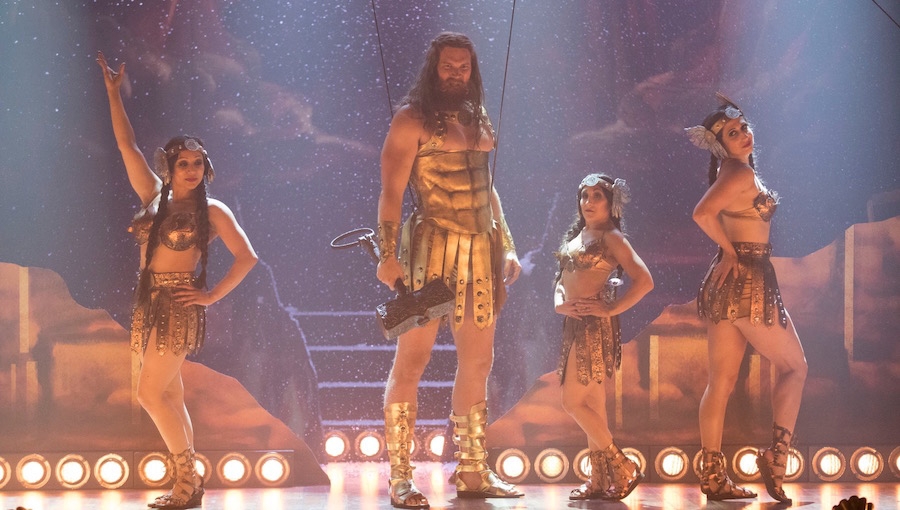The Second Golden Age of Television has brought us great serialized entertainment, but there will always be a special place for fantastic standalone episodes. This week’s episode of American Gods, “Donar the Great,” demonstrates their importance. Adapting American Gods into a TV show allows for the source material’s mythology to expand and develop concepts that are only touched on in the book. Thor’s story is briefly mentioned in the book, but what was originally a few passing lines now takes on a whole new meaning. I expect nothing less from an episode directed by Rachel Talalay.
Set in a burlesque club shortly before the United States joined World War II, we get to see the old gods less weary than they are in present day while the new gods begin to emerge. Linking the Norse pantheon with the rise of Nazism is not only topically relevant to today’s political climate, but it is also historically important. The swastika existed as an icon in multiple religions long before it was corrupted into a symbol of hate. In Norse mythology, it is connected to Thor, and even his lightning abilities served as inspiration for blitzkrieg warfare.
Thor performs in the burlesque club’s strongman act uses the song, “Ride of the Valkyries,” from Wagner’s Ring Cycle, which is significant for multiple reasons. In mythology, the valkyrie carry slain soldiers to Valhalla—the afterlife for heroes. The song’s use early in the episode contrasts the emotional descent of Thor’s journey. While the Ring Cycle includes some of the greatest music ever written, its composer was far from the greatest human being. Richard Wagner died before the rise of the Third Reich, but his antisemitism had a major impact, and his music was played in concentration camps.
On a side note, after watching this episode, you should see Stephen Fry’s documentary, Wagner & Me. He uses it to discuss Wagner’s influence on music and his racist impact. It is a fantastic exploration on separating an artist from the art.

